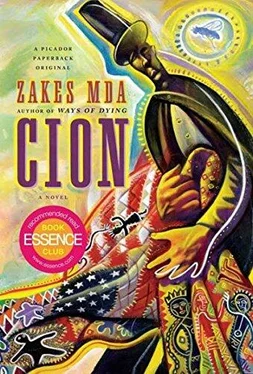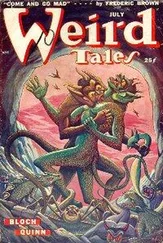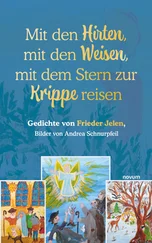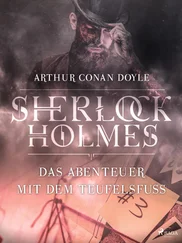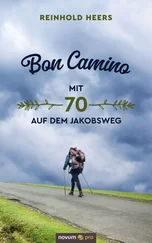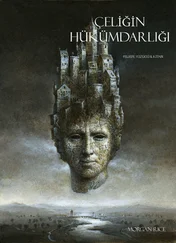Bombs rain some more and light the sky. Ruth and Obed cheer. Mahlon smiles. Still no one dies. Only the depersonalized collateral damage. Superheroes rise unscathed from the rubble and fly to the sky to save the world elsewhere.
Bombs plough the lands of ancient civilizations cultivating new crops of terrorists. Again and again we cheer.
A knock at the door interrupts our beautiful war. It is Nathan and he has brought Ruth coupons from a fast food restaurant in Athens. When I first saw him in that big truck he was an imposing figure. Perhaps it is just the memory of his booming voice. He is a tiny man with the features and the hairstyle of the Jesus on the wall. He is developing a roundish paunch though, and it is beginning to strain the buttons of his shirt. Unlike Obed, he does not seem to pay much attention to his appearance. I am not sure if Nathan is one of the WIN people or not. He looks Caucasian — although Ruth did tell me that her people come in all colors.
Ruth spreads the coupons on her lap, and Nathan points at the choice dishes with his dirty fingernails. There are special offers for fish and shrimps and other seafood delicacies, all pictured in mouthwatering color. Ruth and Nathan admire the pictures and he says he knows that fish is Ruth’s favorite food and when he saw these special offers the first person he thought of was her. She thanks him and says that indeed next time she visits Athens she will go to the fast food place, provided the offers have not expired.
“I know you wanna see Orpah,” says Ruth with a naughty twinkle in her eye.
Yes, he does want to see Orpah because he wants to invite her to a concert in Nelsonville. After calling her name twice without any response, Ruth sends Obed to call her, and then introduces me as the man from Africa. Nathan tells her that we met before and wonders how I like it so far in Kilvert. I tell him how beautiful it is and how hospitable Ruth and her family have been.
“Yeah,” he says, “our people are like that. It don’t matter that we are poor.”
“Todoloo,” says Ruth, tapping her forehead. “Today they call it poverty; back in them days we called it our way of life. We didn’t know we was poor until they came and told us we was poor.”
Outsiders instilled it in the minds of her people that they were poor and gave them food and clothes. That changed their way of looking at the world. Now they cannot do without the charity of strangers.
Nathan explains, for my benefit, that despite Ruth’s misgivings about the dependency mentality that has been created among her people by well-meaning donors, poverty is a fact of life in southeast Ohio, not just in Kilvert. Even the CBS television program 60 Minutes featured a whole segment on the subject. People were shocked to see on their screens Americans waiting in food lines, and to hear of the increasing numbers that now have to depend on food banks and pantries for their meals; of retired veterans and workers going hungry because they have lost their jobs to plant closings; of children forced to rely entirely on the school lunch program for daily meals; of families going to bed without supper. And this situation continues year after year. It is more than a year since the program was aired. Yet nothing has changed. People are still hungry.
“Oh, yeah, them kids are hungry,” says Ruth, “but their parents don’t have no trouble buying beer and cigarettes and lottery tickets.”
Appalachian poverty is news to me. You do not see it from the landscape: from the hills and the forests and the valleys and the creeks and the fields whose beauty inspires awe and effectively hides the suffering that Nathan is outlining for me to Ruth’s consternation.
“We always raised our own food,” she insists. “It was our way of life. Things only got bad when we stopped raising our own food…when they brought free food from them food banks.”
Obed returns without Orpah.
“What took you so long?” asks Ruth.
“Orpah…she won’t come. She won’t see nobody ’cause mama messed her stuff bad.”
Ruth is furious. There must be something terribly wrong with that girl. Where does she get off treating a gentleman such as Nathan like this? The very Nathan with whom she went to school at Amesville. The Nathan who was her after-school playmate. The Nathan with whom she used to ice skate on the Federal Creek and on the pool next to the river when it was frozen in winter. Most importantly, the Nathan who has a regular job, unlike some people she knows — and she looks at Obed. Orpah missed her chance to marry the man the first time he asked her. She turned him down until he married someone else. Unfortunately that someone else died, leaving him with two lovely kids. Orpah should be grateful that the man once again is showing some interest in her. Nathan is a good man and Orpah will surely die an old maid. She is already an old maid as it is.
Of course this diatribe embarrasses Nathan. He keeps on assuring Ruth that it is okay; Orpah will come around one of these days. He is a patient man. He will wait.
Ruth is too cross to enjoy the war on television. She takes her cane and waddles to her room.
As if on cue Orpah strums her sitar. The sound cuts through my insides and reverberates on the timber walls.
“She is a very sad woman,” says Nathan sadly.
He takes leave of us and Obed offers to walk him to his truck.
Before I saw Orpah in person her sitar caused a feeling of nostalgia in me. Now that I am able to associate the sound with the person it no longer does. Instead it arouses me. It arouses me so terribly that I think my veins are going to burst. My heart is pumping blood in such a crazy rhythm that I have to walk away from here. I have got to be as far away from Orpah’s sitar as possible. As I walk out in agony I can see the wicked glint in the sciolist’s eye. Whatever did I do to him to be punished like this? Does he perhaps resent the independence and the freedom to determine the course of my life that I seem to have gained since joining these wonderful people? Is he taking vengeance on me for having lost myself in the lives of the living and momentarily forgetting my mission in life: to mourn the dead and to search for ways of mourning?
Obed and Nathan are standing next to the truck gossiping. They cannot see me as I attempt to flee from my own erection. I can hear Obed boasting: “I told you I was gonna walk, man.”
“So you did?”
“Do I look like I’m in the clink now? I nailed the bitch, man. I nailed her ass good.”
The scoundrel!
I stop under a gigantic sycamore near the road to the churchyard. Here I cannot hear the sitar and hopefully there will be some relief. I can see why they call this a ghost tree. Its trunk and branches are shimmering in the thin light of the stars and the diminishing last-quarter moon as if they have been splashed with fluorescent white paint. As soon as the trunk leaves the ground it opens into a gaping grotto, with dried-up veins and arteries running amok in it. I can see something whitish in the grotto. I retrieve it. Even in the faint light I can see that these are some of the most wonderful drawings I have seen in my life. They are designs of sorts and at the bottom of each one the artist has signed: Orpah Q and then a date. All of them were created late last month, except two that are dated the second and the third day of November. Today. One of these wonderful creations was painted on this very day.
The ghost tree. It is a keeper of secrets. It has many stories to tell.
The story is told by ghost trees; that’s why most of it does not unfold before your eyes but is reported in the manner of fire-side or bedtime storytelling. The ghost trees: the one in front of the Abyssinian Queen’s cabin with its wide span of white branches and others that witnessed the whole journey of her two boys, right up to the demise of Nicodemus and the exile of Abednego in Tabler Town. People remember fondly that she, the queen of stories, used to flap her wings while perching on the highest branch almost one hundred and twenty feet above the ground. But the tree was more than just a place for launching her swooping tales. Its white bark, mottled with green and brown, provided her with enchanting characters when the moon shone on the trunk like a spotlight, shaping out figures in deep contrasts of dark and light. She spoke with these characters and made them do things that none of the audience ever imagined a bark could do. She made them speak words never heard from any tree on earth. Although the tree was at its best at night, during the day it kept itself useful still. Its hollow trunk served as Nicodemus’s hiding place when he wanted to be alone and practice his writing or play his reed flute. Everybody pretended that the ghost tree produced the music. Yet they all knew it was Nicodemus inside the tree. It made them feel good to play along and call it a singing sycamore.
Читать дальше
